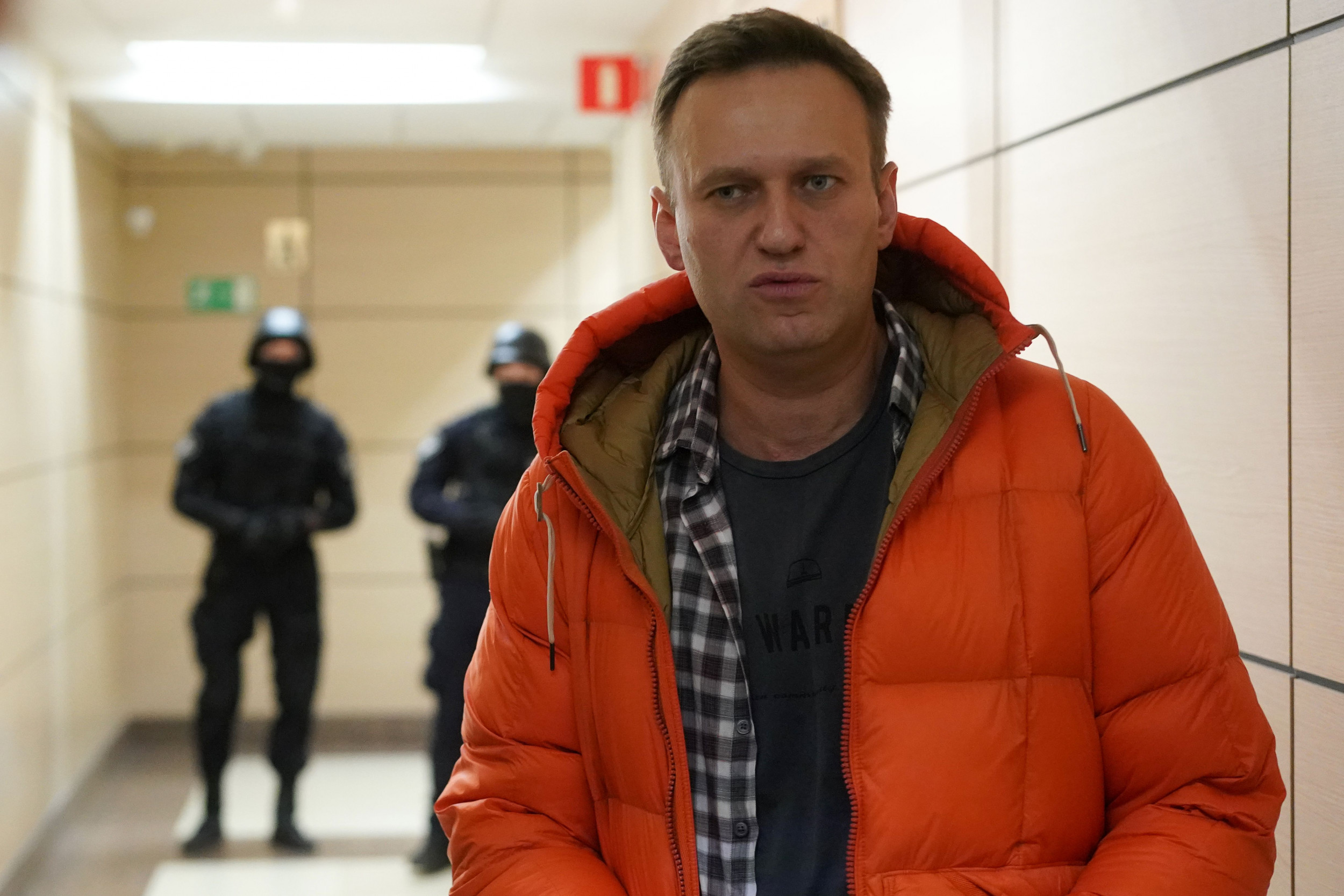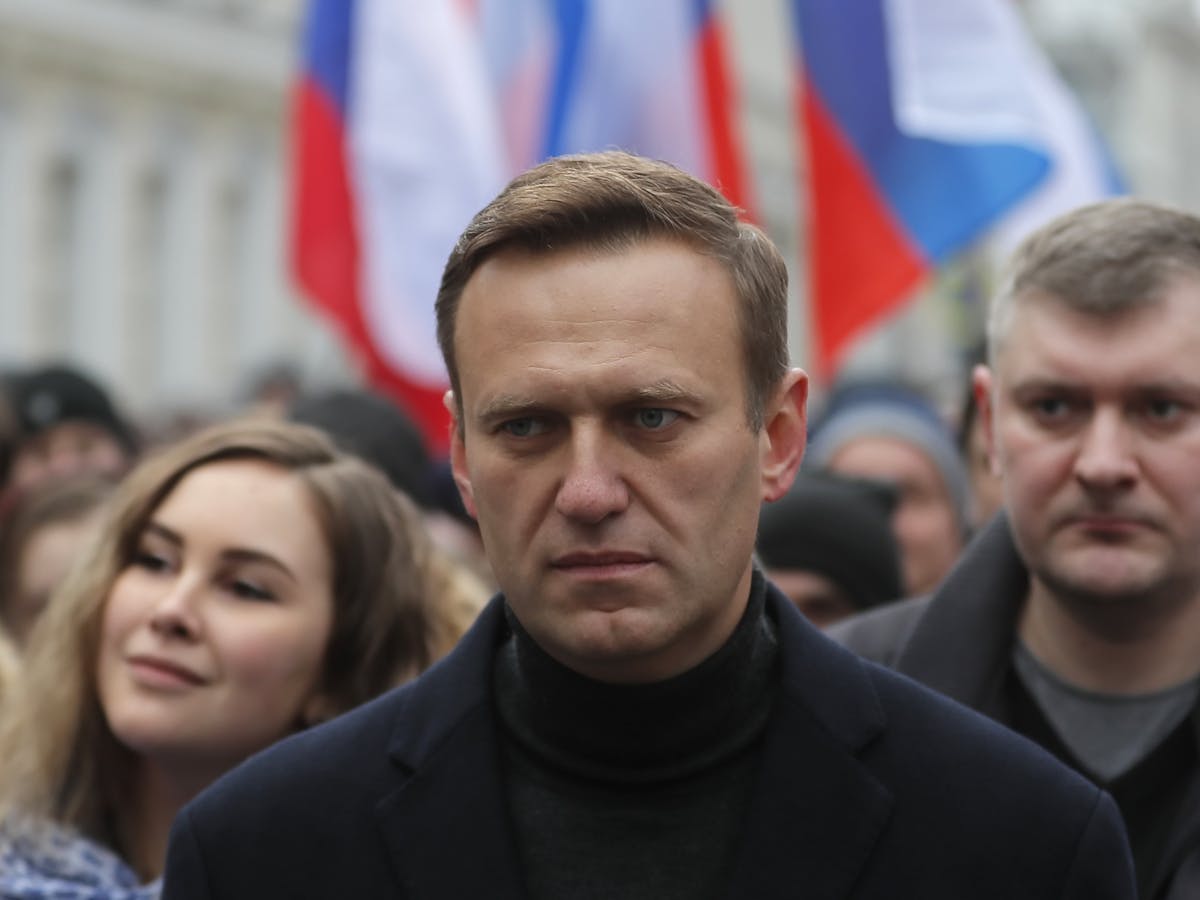
A medicalised plane will take the activist, admitted to Siberia for possible poisoning, to a hospital in Berlin. The Siberian hospital where Russian opposition leader Alexei Navalny was admitted on Thursday with signs of poisoning authorised the transfer of the patient to Germany on Friday to undergo medical treatment. On Saturday morning, a medicalised plane sent by the Cinema for Peace Foundation is expected to take Navalny, who is very critical of President Vladimir Putin, to the Charité Clinic in Berlin. The authorisation of the Russian doctors, who initially refused to move him due to being in serious condition, comes after international pressure.
Navalny, one of the main opponents of President Vladimir Putin and his collaborators, was struck down on Thursday on a plane when he was travelling from Siberia to Moscow and after having ingested a cup of tea, according to his spokesman who accompanied him on the flight. After an emergency landing to transfer him to the hospital, the doctors who treated him induced him into a coma to connect him to a lung ventilator.

Although the first diagnoses transferred to the relatives and collaborators confirmed the hypothesis of poisoning, as time went by, the Russian doctors assured that they had not found “traces of poison” in the analysis they had carried out on the activist and that, despite the slight improvement of the patient during the night, his condition “remains unstable and is not transportable”, according to the chief physician of the Omsk hospital, Alexandr Murajovski. This doctor only pointed out that they had found traces of industrial chemicals on his fingers and clothes and that he had been diagnosed with a metabolic disease caused by low blood sugar.
During the night, the Cinema for Peace Foundation flew a medicalised plane to Omsk to take the opponent back to Russia, as the family had requested.
The three German doctors who travelled to Omsk had to wait until early in the afternoon to see Navalny, after which they assured that his condition allowed him to face the trip with sufficient guarantees. They still had to wait a few hours before receiving authorisation. Bizilj, the founder of Cinema for Peace, has confirmed that they have the green light for the Russian opponent to travel to Germany despite his deteriorating health. “We are very happy to finally have the authorisation to carry out humanitarian work”, he assured by the telephone.
Despite the reluctance of the Russian doctors, who authorise the trip under the full responsibility of Navalny’s wife, Bizilj explains that “although he is unconscious, he is able to fly” in the medicalised plane, of which they use it to transfer patients from conflict zones, which they have rented for this purpose. The Russian opponent will be admitted to the great hospital of the Charité in Berlin, where Pyotr Verzilov already received treatment two years ago. The Russian activist of the group ‘Pussy Riot’ was hospitalised two years ago in the same medical centre when he was transferred by the same organization after presenting symptoms of poisoning.
Throughout the day, the politician’s aides mistrusted the strictly medical nature of the Russian doctors’ decision. “They are hiding the evidenceof his poisoning,” denounced the activist’s spokesperson, Kira Yarmysh, who accuses the Omsk doctors of having been unable to determine the substance with which he was poisoned and that despite this they did not allow it to be transported to Germany.
From the first moment the supporters of Navalny and his wife Iulia Navalnaya – who last night was allowed to enter the room where Navalny is connected to a ventilation apparatus – had expressed their will that he be treated abroad and this morning they have spread in social networks a letter with the request addressed to Russian President Vladimir Putin, which they claim to have sent to the Kremlin.
Kremlin spokesman Dmitri Peskov, who wished Navalny a speedy recovery, has assured that the Kremlin is not opposed to the opposition politician being treated abroad and invited German doctors to join the team that treats him in the Siberian hospital, as has happened.

The European Commission has played an active role and has asked Moscow on Friday to quickly allow his transfer and an investigation into his alleged poisoning. “We expect a swift, independent and transparent investigation and, if the facts are confirmed, those responsible must be held accountable,” a Commission spokeswoman said at a press conference. “We trust that the Russian authorities will fulfil their promises to allow Navalny to be transferred safely and quickly abroad to receive medical treatment in accordance with the wishes of her family,” she insisted.
Germany and France had already offered “all necessary medical help” on Thursday. Chancellor Angela Merkel declared herself “shocked” and French President Emmanuel Macron said he was “extremely concerned”. Both had asked for “clarity” and “transparency” about their status. “Of course, it is a political decision, not a medical one. Alexei’s life is in great danger”, declared on Twitter the also opponent Volkov.
Despite the results of the analysis, Ivan Zhadov, the spokesman for the Anti-Corruption Foundation (FBK), the NGO founded by Navalny, stated at the gates of the Omsk hospital that the doctors at the centre had previously confirmed the presence of a poison “dangerous for him and for those around him” in the body of the opposition leader, although he has not specified what substance it was. According to the spokesman, the name of the poison is secret, as it is part of the investigation. Zhadov has called on the international community to prohibit the Russian authorities from vetoing Navalny’s transfer. “Delaying transport can cause irreparable damage to life and health,” he has sentenced.
A passenger who was flying on the same Navalny plane told 5-tv.ru that before losing consciousness Navalny began to scream in an inhuman voice. “Everyone was very scared, I started crying and had a panic attack. He was slapped several times on the face and the pilot announced his decision to make an emergency landing in Omsk”,he said. Once on the ground, a brigade of doctors arrived and took Navalniy unconscious. The passenger added that while the plane was being fuelled, people began to discuss the incident heatedly and some shouted: “He was drugged! It’s an overdose!”

Navalny’s supporters are convinced that he was poisoned, just as it happened when he was incarcerated (although prison doctors said it was an acute allergy). It could be a psycho-dysleptic substance, according to some sources, and others say that it could have been with sodium oxyburate, which in bad doses produces the effects of ecstasy pills, but that if the dose is large it can be dangerous and the person in issue may fall into a coma.
Sergei Boiko, leader of Navalny supporters in Novosibirsk, said that during the visit to that city the opponent realised that he was being followed. Navalny is the most charismatic leader of the extra-parliamentary opposition, who has played a key role in the demonstrations against the current regime after all the elections in Russia.
In addition, Navalni for years headed the Anti-Corruption Fund, which periodically revealed the fortunes and real estate of Russian officials. The Russian authorities included this fund in the list of external agents in 2019, which implied a series of limitations to the operation of that organization. This, together with several open lawsuits against him, led Navalny to announce the liquidation of the fund last June and his intention to create a new body to continue its work.



